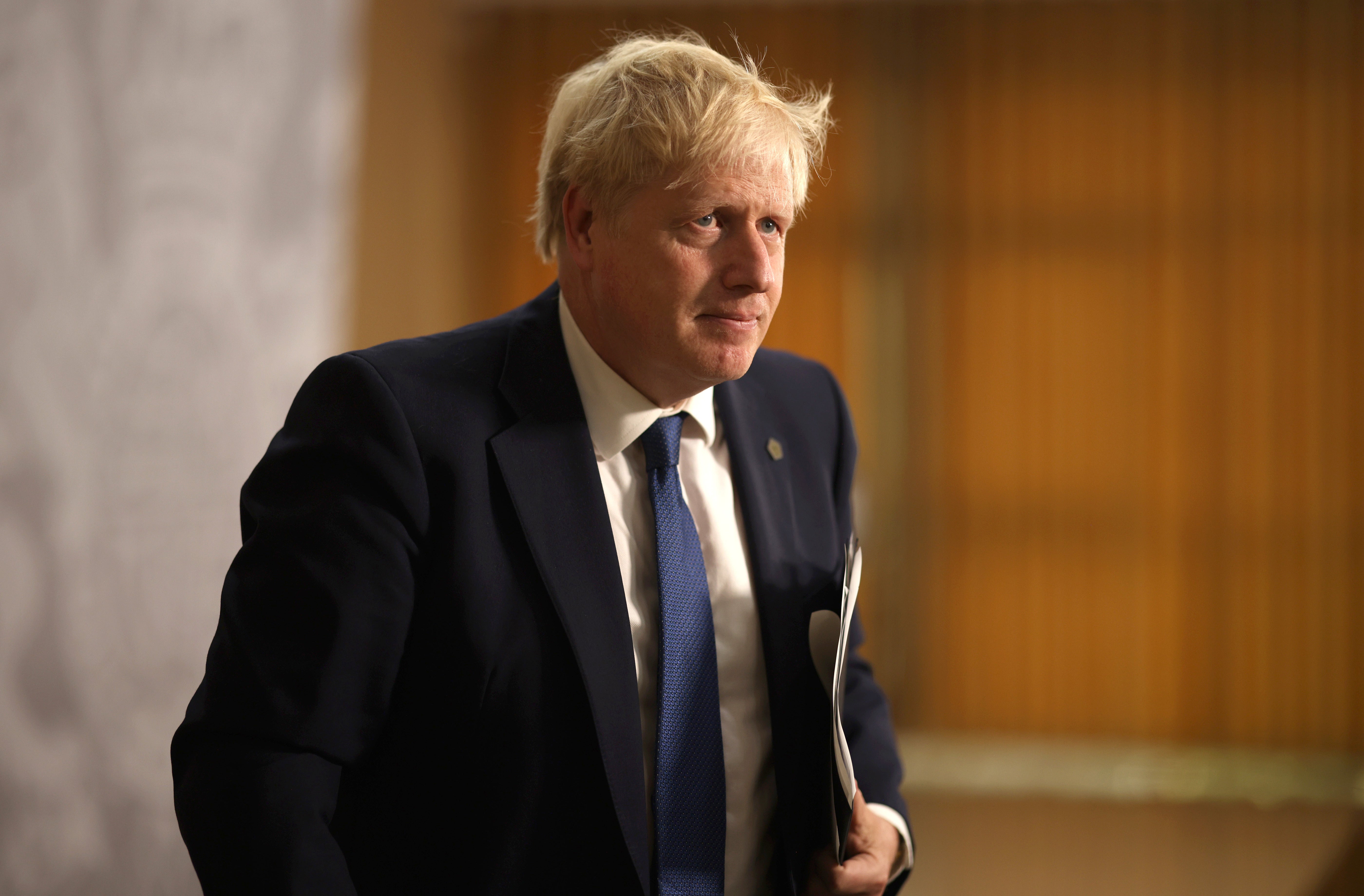The problems Boris Johnson faces from within his own party are not going away
Although his opponents vary wildly in outlook, the sheer strength of feeling to be rid of the prime minister is uniting voters and Tory MPs alike, writes Sean O’Grady


It would be unfair to claim that the by-elections last week in Wakefield and Tiverton and Honiton were deliberately timed to coincide with a string of international summits – Commonwealth, G7, Nato – but it was a fortunate coincidence for Boris Johnson. Although a few stray questions about his future wafted over to Kigali, Bavaria and Madrid, he was spared much of the political heat waiting for him at home, and Dominic Raab was deputed to face off against (and wink at) Angela Rayner at Prime Minister’s Questions.
But, despite a lack of public tumult calling for Johnson’s head, the plotting has been continuing, and visibly. As one of his enemies quipped last week, the cat was away so the mice did play. One ominous development is an organised attempt to turn the elections for the Tory backbench 1922 Committee into both a proxy vote of confidence in Johnson’s leadership and a means to change the rules and secure a fresh vote to remove him from office.
The difference now is the high-profile intervention of Steve Baker in any takeover of the 1922 Committee. The self-styled Spartan, ex-Brexit minister and chair of the European Research Group cannot be dismissed as some kind of embittered “Remoaner”. More than that he enjoys a formidable reputation as an organiser, the sort of man who knows his way around a spreadsheet.
Whereas the last crisis and vote of confidence in Johnson was largely an organic, mostly uncoordinated and premature assault, this and future moves to unseat the PM will be much more professional. A trickle of new critics are emerging, though it is also fair to say that some of the earlier dissenters are now calling (at least in public) for unity. In any case there seems a more determined mood for change after the disastrous local elections, by-elections and the continuing divisions, dither and delay in government.
The so-called pork pie plotters, for example, said to include Alicia Kearns, MP for Rutland and Melton, (and hence the sobriquet) has openly called for Johnson to go. The 1922 Committee will meet next week to decide on the timing for their next elections, and that will be a crucial date in the story of the fall of Boris Johnson.
One other straw in the wind suggests that the prime minister will lack cabinet support if the time ever arrives when he wants to defy a ruling of the Commons committee on standards. Allies of Boris Johnson have been spinning that the newly reconstituted committee will be a “kangaroo court”. Although any such suggestion has been refuted by cabinet ministers like Liz Truss. The chair, Chris Bryant, a loud Johnson critic has recused himself from the inquiry into whether the PM knowingly misled parliament, and he has been replaced by Harriet Harman, another Labour MP, and of 40 years’ standing.
Casting early doubts over the integrity of the committee is the first defensive move with the potential for a report so damning he would have to quit, or, in an extreme case possibly face a by-election after a suspension from parliament. The fact remains, however, that the committee has a narrow majority of Conservatives, including Bernard Jenkin, and its authority has not been placed under suspicion.
Truss’s remarks about the forthcoming inquiry are what you’d call “unhelpful”. Declining the opportunity to rubbish Harman, Jenkin and the others on the committee, she said: “I trust implicitly my parliamentary colleagues to listen properly to the evidence and make the right decision.” Truss added that she didn’t see a problem with Harman chairing the committee.
The prime minister’s main problem in his parliamentary party is becoming the same as it is in the country. Although his opponents vary wildly in outlook and there’s no consensus about anyone in particular to replace him, the sheer strength of feeling to be rid of him is uniting voters and Tory MPs alike.
His semi-joke about looking forward to a third term in office probably concentrated more minds than the by-elections. Should Johnson make it to the 2030s it will probably be because he’s abolished leadership challenges and elections and installed himself as leader for life. There is no time to lose.



Join our commenting forum
Join thought-provoking conversations, follow other Independent readers and see their replies
Comments